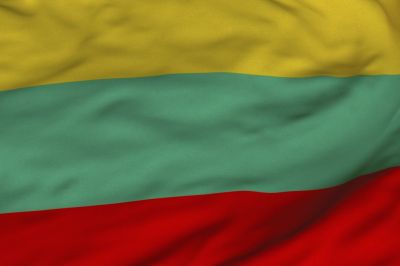Lithuania - Master's studies
Population (mln): 3,24
Official language/s: Lithuanian
Time zone: UTC+1 Winter, UTC+2 Summer
Internet TLD: .lt
Calling code: +370
Member of the EU from: 1st May 2004
Unemployment rate Sep 2011 (%): 17.0
Unemployment rate under 25 years Sep 2011 (%): 31.8
Unemployment rate Sep 2012 (%): 14.1
Unemployment rate under 25 years Sep 2012 (%): 31.9
Population statistics 20-29 age group 2011 (%): 15,3
Country codes in education system: LT
Expected duration of education (years): 18
Master's
Degrees last for one-and-a-half to two
years (60-80 national credits). To be admitted, students should hold a
qualification obtained after completion of a university first cycle study
programme or a comparable qualification.
A Master study programme prepares for independent research or artistic
activities or activities for which deeper scientific knowledge and stronger
abilities are required. Master studies are carried out at universities where
research corresponding to a subject area is conducted. The general requirements
for Master programmes are approved by the Ministry of Education and Science.
Studies lead to a Master (Magistras) degree and /or a professional
qualification (profesiné kvalifikacija). After completion of studies a Master's
degree (Magistro diplomas) or a Higher Education Diploma (Aukštojo mokslo
diplomas) is awarded. The Higher Education Diploma is awarded when studies lead
to a professional qualification. These qualification generally gives the right
to enter university third cycle studies. Special professional studies last for
1 to 2 years (40 to 80 national credits). To be admitted, students should hold
a university first cycle or a comparable qualifiaction. These studies prepare
for activities requiring special practical abilities. The general requirements
for special professional programmes are approved by the Ministry of Education
and Science. These studies lead to a professional qualification (profesinė
kvalifikacija). After completion of studies, a Higher Education Diploma
(Aukštojo mokslo diplomas) is awarded. Generally, a qualification obtained
after this type of studies does not give the right to enter third cycle university
(postgraduate) studies. There are also Integrated (vientisosios) studies that
combine university first and second cycles. To be admitted, students should
hold a Maturity Certificate (Brandos atestatas) or a comparable qualification.
Studies lead to a Master (Magistras) degree or a professional qualification
(profesinė kvalifikacija). When studies lead to the award of a professional
qualification, they last for at least 4.5 but not more than 6 years (180 to 240
national credits). When studies lead to the award of a Master's degree, they
last for at least 5 but not more than 6 years (200 to 240 national credits).
The only exceptions in integrated studies are made in the fields of Medicine, Odontology and Veterinary Medicine
where studies may last longer but no more than 7 years (a maximum of 280
national credits). On completion of integrated studies a Higher Education
Diploma is awarded. Generally, a qualification obtained after completion of
integrated studies gives the right to enter university third cycle.
